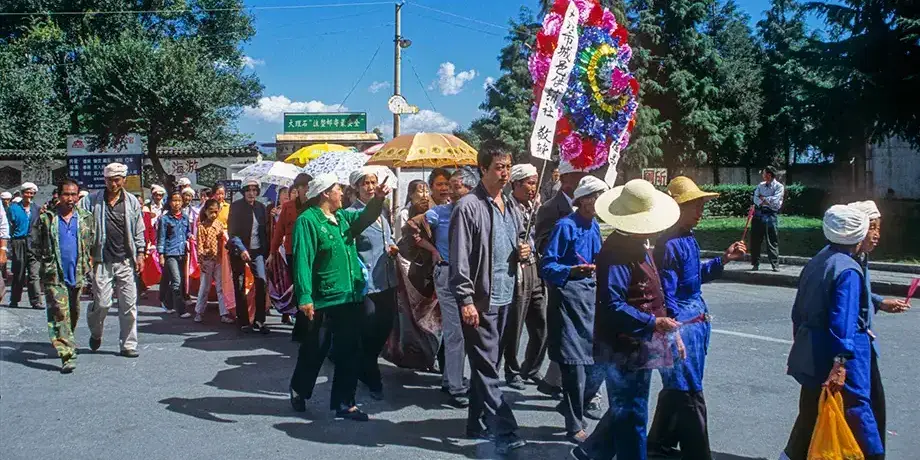
The personal experience of loss and grief over the death of a loved family member is universal. People tend to remember the lives of those who have recently died. Neighbors, friends and relatives often gather together to be with the family when a cherished member has passed away. The way that this passing is remembered and celebrated differs in various cultures. While the emotional pain of grief may be similar, if not the same; there are other elements of marking this transition that share commonalities across cultural frontiers.
At a Catholic Chinese funeral in Taiwan, the family has the large coffin brought to the Church for the wake on the evening before the funeral Mass. Members of the family stay in the Church throughout the whole night. Candles and incense are placed on a small offering table. Offerings of food on plates, fruits, a tiny vase of wine, and other items are placed on this table.
A full facial picture of the deceased is placed prominently in front. The emcee calls out members of the family in the order of their birth to stand, bow and offer incense. The eldest son or daughter wear distinctive funeral garb. There are markings which distinguish birth order among the surviving family members (second child; in-law; grandchild, etc.). Attendants stand on either side of the offering table to provide assistance to the mourners. Eventually, neighbors and friends of the deceased form a line to offer a deep bow; showing respect with the offering of lit incense. The use of incense is important in the ritual of Chinese funerals.
The Catholic funeral Mass celebrates our faith in the Risen Lord and our hope to be reunited at the end. The priest/deacon accompanies the family to the cemetery for burial and gravesite prayers. Then there is a gathering for a meal with all the mourners.
Yet the grieving and ritual does not end. On the 7th day after the passing of the deceased person, the family and priest are expected to gather to pray and remember. This prayer service often happened in the family home. This practice would continue for seven weeks until the 49th day after the death of the person. Then the grieving period would be considered complete. Families, naturally continue to have times of sadness and a sense of loss. Catholic memorial Masses are offered to console the living and recall the promises of Eternal Life.
It is universal experience to have tears and smiles in a person's life. The old Taiwan song mentions it: We each have tears and smiles. So, how has this life experience impacted us and how do we live with this range of emotions.